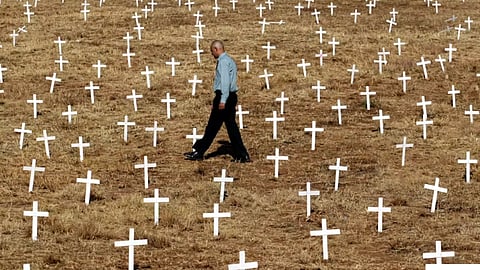Mailbox
Mailbox: "The slow genocide" - Pieter Kelbrick
A chilling open letter argues that ongoing farm attacks in South Africa meet the UN’s definition of genocide - highlighting state inaction and the erosion of rural communities.
Key topics:
Farm murders match UN genocide criteria in slow, systemic ways
Survivors face torture, trauma, and the collapse of rural life
State inaction normalizes violence and undermines justice
Sign up for your early morning brew of the BizNews Insider to keep you up to speed with the content that matters. The newsletter will land in your inbox at 5:30am weekdays. Register here.
Support South Africa’s bastion of independent journalism, offering balanced insights on investments, business, and the political economy, by joining BizNews Premium. Register here.
If you prefer WhatsApp for updates, sign up to the BizNews channel here.
The auditorium doors will open for BNIC#2 on 10 September 2025 in Hermanus. For more information and tickets, click here.

